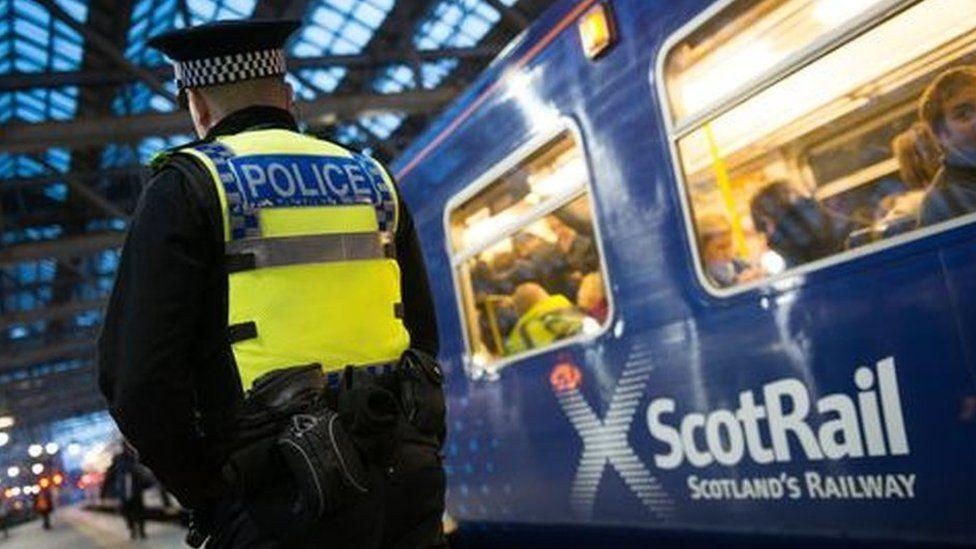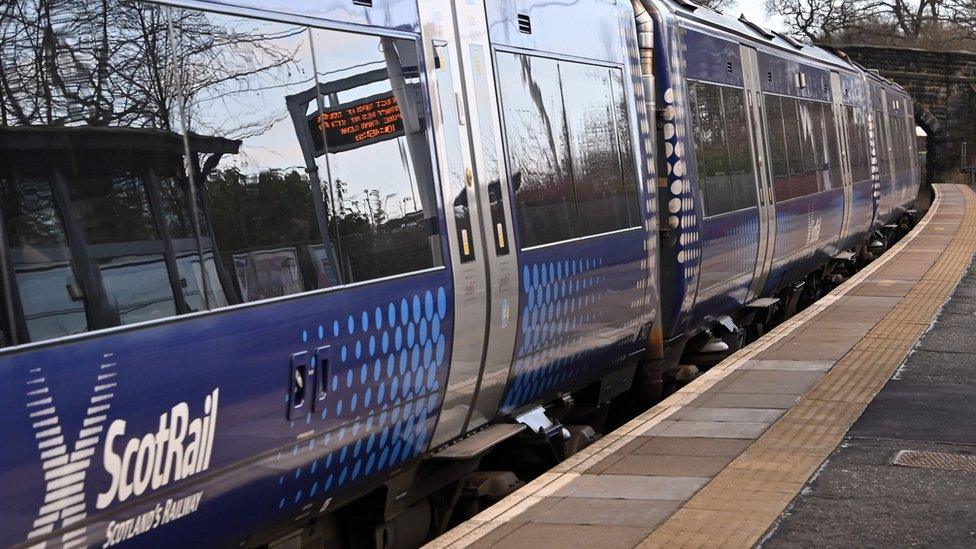ScotRail alcohol ban to remain for the 'foreseeable future'
- Published

The ban on passengers drinking alcohol on ScotRail trains will remain in place for the "foreseeable future", the rail operator has said.
It was introduced in November 2020 to limit the spread of Covid.
However ScotRail - which is now owned by the Scottish government - said it has agreed to keep the ban in place.
They said it would be reviewed part of the government's "national conversation on rail".
When the policy was introduced, ScotRail said it would help to maintain the physical distancing required while travelling.
They said it would also support greater use of face coverings.
Drinking of alcohol had been previously banned on ScotRail services between 21:00 and 10.00.
During the pandemic it was extended, prohibiting the consumption of alcohol at any Scottish station or on board an ScotRail train at any time of the day.
Passengers are also banned from carrying visible alcohol - open or unopened - and they can be denied entry to trains if deemed unfit.
Allow X content?
This article contains content provided by X. We ask for your permission before anything is loaded, as they may be using cookies and other technologies. You may want to read X’s cookie policy, external and privacy policy, external before accepting. To view this content choose ‘accept and continue’.
Earlier this week ScotRail's service delivery director David Simpson told BBC Scotland he did not think the alcohol ban would be permanent.
He said the move had been "successful, particularly in containing some of the antisocial behaviour alcohol could often generate on some services".
However, he said the stance would be considered as part of a "national conversation" on rail services.
"I doubt it will be permanent," he told the BBC Radio Scotland's Good Morning Scotland on Tuesday.
"We want to make sure that we've covered all the bases before we lift it and we've taken into account passengers' views to make sure that where alcohol is consumed it is done so safely and appropriately on people's journeys."
Related topics
- Published12 November 2020
